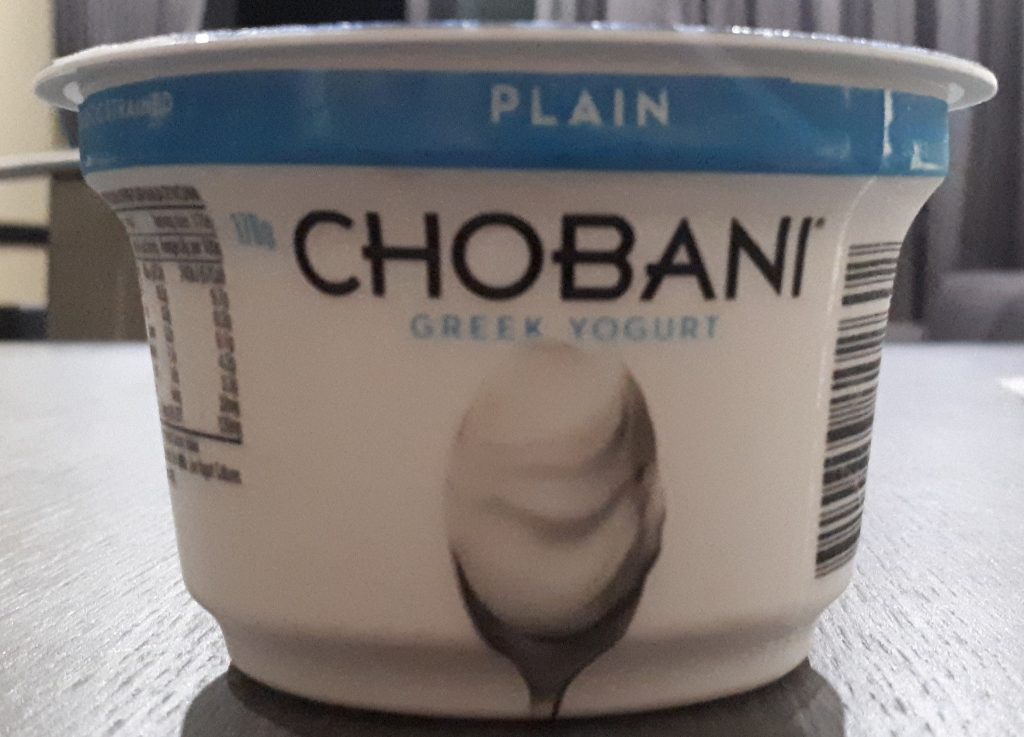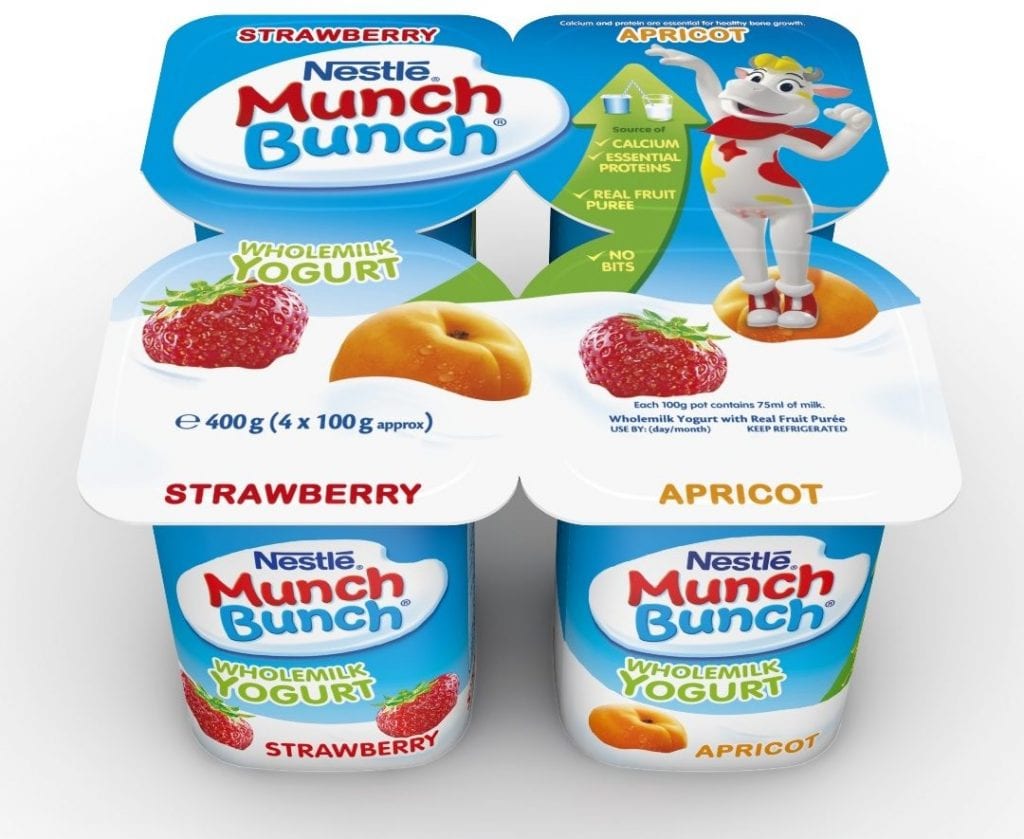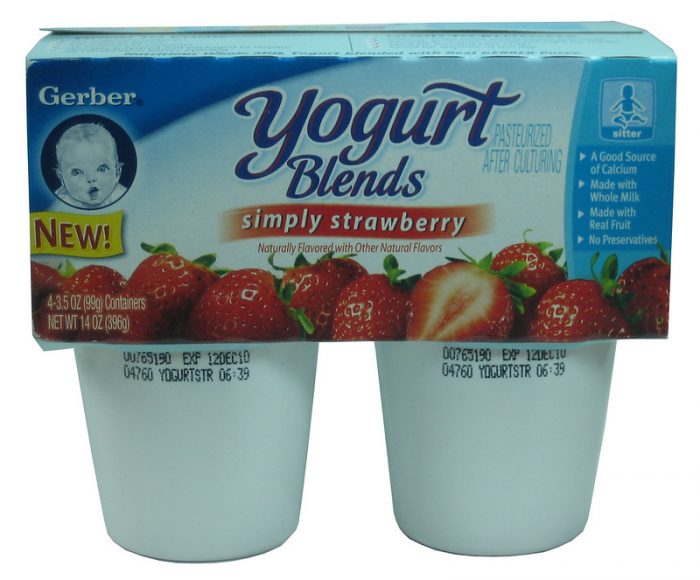The Best For Baby
Your little one is now 6 months of age and can start eating “people” food. They are now looking at you to give them food other than formula or breast milk. This interest may have started long before that, but now their digestive system can handle new food choices. But what is the perfect food to give a youngster aged 6 months and up?

There are so many things to think about when feeding your baby something like yogurt and that is what we are exploring today – the best yogurt for babies.
Yogurt: One Of The Best Baby Food Choices
Do babies eat yogurt? The short answer is yes. For some people or pediatricians, they may recommend feeding your yogurt for your baby between 7 to 9 months but many suggest 6 months is safe for them. Research shows that many babies and older children enjoy eating yogurt a lot. If you find a site or person that says it’s okay for them to give to a 4-month-old baby, this has been proven incorrect. Your baby may show interest in the act of eating by watching others eat and reach the food, but their digestive system is not quite ready to consume ‘people’ food. At this stage, children, particularly older toddlers, probably want solid foods for their meals, and that’s okay. However, when eating solid foods, they still may struggle with chewing, which is why soft solid foods are ideal for them. They also may be moving from breast milk and formula to new types of foods, and that’s why the migration from breast milk to solid foods has to happen, and it’s why introducing yogurt is one way for them to enjoy.

Yogurts Best For Baby
There are many types of yogurts, these baby yogurts are plain yogurt, Greek yogurt, milk plain yogurt, baby yogurt, plant-based yogurt, and regular yogurt to name a few. Plain whole milk yogurt is ideal to start with. Milk yogurts are high in fat and your child is growing the quickest it ever will. In one year, your child is transforming tremendously and needs as much energy as they can get. Fats provide the energy they need for their. Eventually, you can let them try different flavors for their reference, but among the most loved ones is the banana flavor.
Any of the yogurts are fine to try out but make sure you stick with the same one for at least 3 days. It takes 3 days to see if your child has a milk protein allergy to novel food or non-organic dairy products for this matter, and you should wait at least 3 days before introducing another product into their diet. Because of this, you should stay away from flavored options. Do not feed your little one with strawberry or other flavors because you will not know if they are allergic or sensitive to the yogurt or the flavor if you introduce flavored options without trying plain yogurt first. Most babies initially have food allergies even to organic dairy or other probiotic-rich foods.

Are Full-Fat Milk Yogurts Okay For Babies?
Most definitely! Your baby is growing so fast that every calorie needs to count. Fats provide the much-needed energy that your child needs to make it through the next growth spurt. It’s tiring stuff to grow so quickly in such a short period. It is suggested to feed your baby with full-fat yogurts. Whole milk and Greek yogurts have a lot of fats in them. If your child has a milk allergy or lactose intolerance, a visit to the pediatrician is highly recommended before consuming yogurts.
Why Yogurt Is Good For Babies
Chances are, your child is starting to move from breast milk over to baby food and solid foods. While breast milk is filled with many different ingredients to improve the child’s nervous system development, you may want to consider adding some baby yogurts too. Let your little one be healthy!
Lots of baby yogurt contains various ingredients, including organic whole milk, and it’s a good source of calcium and vitamin D and is a valid source of more protein. Breast milk or formula does have some of the same factors, and it is considered a healthy food, but with baby yogurt, your child gets a yummy treat, even with just one small bowl.
Differences Between Baby Yogurt And Regular Yogurt
Some moms may consider finding a good yogurt that doesn’t break the bank a bit of a challenge. You may wonder if baby yogurt is the same as regular ones, which most adults have. Regular yogurt is good for you and for your 6-month-old youngster, and there isn’t too much of a difference.
In the battle between baby yogurt vs. regular yogurt, there isn’t much of a difference. The biggest one is you’ll notice that the former is a little bit more expensive than the latter counterpart.
So if you’re looking to save some cash for the future, you may want to consider regular yogurt for your choice. Both of these offer brain development, especially for your babies, and you can get both of these at the store. Having these along with milk and formula gives your child the same good source of vitamins and minerals for their body. You can give your child regular yogurt but do be mindful that if you do give them regular yogurts for snacks, you may want to limit the amount of what you give them.
That’s because regular yogurts are usually a lot bigger, and if you give them to your child, they may feel bloated and full for some time. Both of these can be natural or have added sugars to them. So if you’re going to give your child either of these types of yogurt for snacks, you may want to watch out for added sugars, since babies don’t realize that there are added sugars in this either. However, it is okay to give a child the regular one, just be mindful of how they feel afterward.

Can My Baby Eat Yogurt Every Day?
From plain to milk to baby yogurt, it is okay to feed your child yogurts every day. It helps with their digestive system and helps them stay on a regular schedule for their bowels. Stay away from yogurts with probiotics. Although probiotics are helpful when your child is constipated, your child will naturally create probiotics. If you provide probiotics in their food, then their digestive system will stop naturally making these probiotics and become dependent on the outside source. Some children starting potty training may not be able to handle the active cultures in this, because they may end up feeling constipated or have to go more, and it can throw off potty training. If you are beginning potty training, try to limit the active cultures so that it doesn’t irritate the child’s stomach.

Is Plain Greek Yogurt Okay For My Baby?
This is the best baby yogurt to give to a child, especially if they’re starting solids. This is because it offers many of the same nutrients as breast milk and formula. If they are moving from breast milk and formula over to solid foods, this is a great one to give to a child.
This is the top choice for those moving past milk and formula because it is great solid food, isn’t too much on the stomach, and you don’t have to worry about added sugar. You can get regular yogurts in Greek form, and the added sugar will be lessened. It is passable for children at this stage, especially Greek, and without worrying about the added sugar, making them a great option to consider.
Plain whole milk yogurt made with organic whole milk is similar to this, since the added sugar is minimized, and it is made with cow’s milk. But if your child is lactose intolerant and can’t handle cow’s milk, you may want to give them something different from organic whole milk yogurt like one with almond milk for instance, or other plant-based options. That is why, Greek regular yogurt with a creamy texture is good for a lot of children, especially when moving toward solid foods.

Why Do I Have To Be Careful With Flavored Yogurts?
Flavored yogurts, even those mixed with pureed fruits especially regular yogurt that is flavored may be a good thing especially if your child wants solid foods. But the problem with flavored options is the sugar. There is usually a lot more added sugar in there, and the added sugar adds up.
While your child may want to move to solid foods, you should look into plain yogurt as the perfect option, since they don’t need all of the active sugars in it.
Is Nestle Whole Milk Yogurt The Best For My Baby?
Nestle is a great choice if it is regular yogurt or Greek yogurt made from whole milk and has “live cultures”. It provides your child with protein and calcium which is much needed. But this is up to you as the parent. If your child ends up not liking the plain Nestle yogurt you gave them, then you may have to go with another choice or maybe introduce mixing in pureed fruit to get that best baby yogurt.

Is Baby Yogurt The Same As The Regular Yogurt?
While baby yogurt and regular yogurt may have some similarities they are not the same. Baby yogurt is made with full cream milk while regular yogurt is made with 2% lower-fat milk. Baby yogurt is also made with organic milk and contains less sugar. Remember, more fat means more energy that can be used by your baby to become a toddler. Just make sure you start with plain flavors rather than fruit flavors.
Don’t Worry, Just Remember This
Don’t worry. There are a lot of options and a lot of worries that you will have moving forward. In today’s world, you can make so many choices to make your growing child healthy. It is scary and can be overwhelming but don’t let the decisions hinder you. Your child will still grow whether you choose baby yogurt or Greek yogurt over another type of yogurt.

Just remember that when your child is just stressed out, do not get fruit-flavored yogurt, since you do not know if your little one is allergic to it or not. Don’t get fat-free or low-fat yogurt. Your child needs all the fats they can get. And don’t forget to enjoy the new experiences with your child! Before you know it, your baby is a teenager trying to achieve the independence they desire!
Frequently Asked Questions
Can Babies Aged Six Months Old Have Eggs?
How Do I Introduce Yogurt To My Child?
Why Can Younger Kids Have Yogurt But Not Milk?
Can Babies Have Cold Yogurt?
What Is The Healthiest Greek Yogurt?
What Can I Add To Plain Yogurt?
What Is The Difference Between Yogurt And Greek Yogurt?
Which Greek Yogurt Has The Most Probiotics?
Kefir surpasses yogurt in probiotic richness for real, boasting up to 61 diverse microbe strains. Utilizing distinctive microbial clusters known as kefir grains, individuals expertly ferment milk for this unparalleled probiotic source.
Other Resources
https://mylittleeater.com/bestyogurtforbaby/
https://www.yummytoddlerfood.com/best-yogurt-for-toddlers/
https://www.experiencedmommy.com/best-yogurt-babies/
Last Updated on May 15, 2023 by Nisa Jabajab
DISCLAIMER (IMPORTANT): This information (including all text, images, audio, or other formats on FamilyHype.com) is not intended to be a substitute for informed professional advice, diagnosis, endorsement or treatment. You should not take any action or avoid taking action without consulting a qualified professional. Always seek the advice of your physician or other qualified health provider with any questions about medical conditions. Do not disregard professional medical advice or delay seeking advice or treatment because of something you have read here a FamilyHype.com.